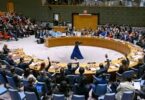Talking to a delegation of Rawalpindi Chamber of Commerce and Industry (RCCI), President Mamnoon Husain claimed that Pakistan’s Gross Domestic Product (GDP) has grown significantly during the last few years which have strengthened the national economy. He said there was a need to further enhance national income and development through continuation of the existing policies and urged business community to play a pivotal role in putting the economy on a road to speedy progress.
The claim of substantial economic growth is debatable as non-productive expenditure led growth does not increase national income in real in real terms. It is then an illusion of words and fictitious numbers. That is why the lopsided policies of the present government has worsened the condition of common man because the economic growth portrayed had no trickle down effect on the poor people and the response option for ameliorating their condition is not forthcoming. Because of the current policies 40 percent population is living below the poverty line and 50 percent is faced with the chronic problem of food insecurity. People drink contaminated water, health facilities in government hospitals are insufficient and prices of life saving medicines have gone up by 100 percent. The number of children out of schools is 80 million. In human resource development index Pakistan is much behind India, Bangladesh and Srilanka. The target of Millennium Development Goal (MDG) has not been achieved. It was because of this deliberate failure of the government that former Prime Minister Nawaz Sharif skipped the UN meeting on Sustainable Development Goal (SDG) in 2016.
Macroeconomic indicators have deteriorated abnormally. Exports have declined by $ 5 billion and imports of more than 300 hundred essential goods are constantly rising despite highly punitive regulatory duty because imports substitution industry could not flourish due to unfavorable economic environment. There is no energy policy for cheap and environment friendly power generation from hydro, wind and solar sources and main focus is on expensive thermal power generation from fossil fuel which will also be a major cause of spreading fatal diseases like Asthma and Cancer. The deal for the import of LNG from Qatar is still shrouded in mystery because of its shady nature. The price of the same LNG in India is $ 7 per mbtu whereas its price in Pakistan is $ 11 per mbtu. The sky high tariff of energy inputs and a barrage of regressive indirect taxes have increased the cost of doing business and have made exportable goods less competitive. Textile sector is plagued by shut downs and the entrepreneurs are shifting their units to Bangladesh, where the price of electricity is five times lower than Pakistan. Not a single cotton plant is grown in Bangladesh but it exports cotton cloth, yarn and ready made garments worth $ 27 billion whereas the total exports of Pakistan are stagnant at $23 billion. The business community can play its role in economic development only when the economic environment is conducive in terms of inexpensive energy prices, progressive tax structure and liberal monetary and fiscal incentives for exports. The present government is not facilitating the exporters to explore new markets and diversify the composition of exports. Despite the negative economic environment, a number of primary commodities and finshed goods have certain degree of comparative advantage for export but the trade policy is not helpful to boost their exports.
The contention that electricity production has been increased with reduced tariff is not correct as per unit price of both domestic and commercial consumption has not been reduced at all. The relief, occasionally given to consumers through fuel price adjustment, is not a reduction in tariff. If the price of furnace oil and diesel goes up this relief will not be given to the domestic and commercial consumers. Reality is that the economy is in shambles and no corrective measures have been taken to address the macro economic imbalances of falling imports, curtailing wasteful expenditures, checking the rampant corruption and abandoning reckless borrowing to avert the likely threat of debt trap and insolvency.






